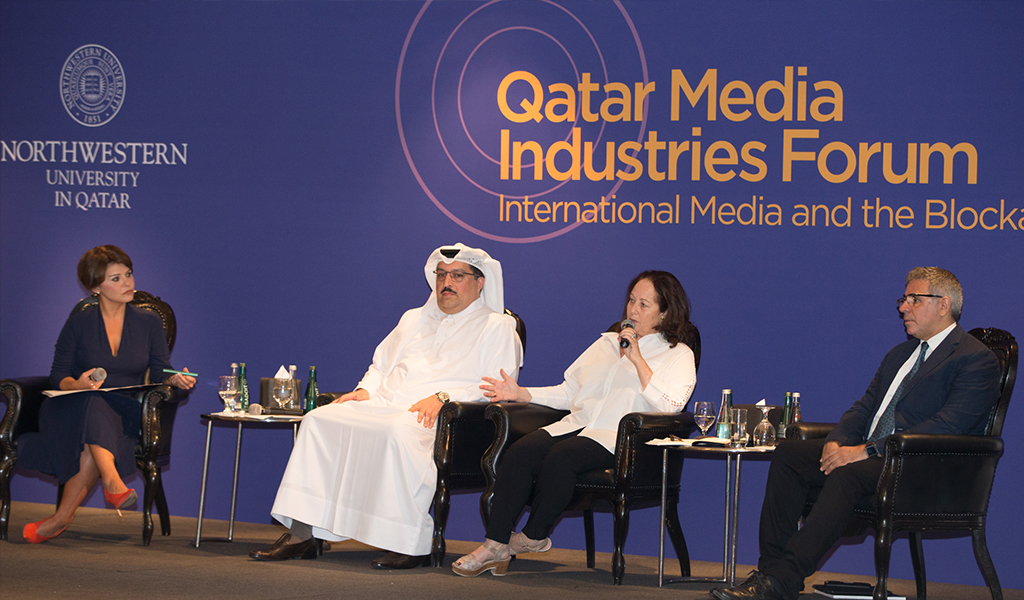The blockade imposed on Qatar by neighboring countries has had significant repercussions on the trust people have in the media and has also magnified the dangers of fake news in shaping political discourse and public opinion. Those were some of the conclusions drawn at Northwestern University in Qatar (NU-Q)’s latest Qatar Media Industries Forum.
The forum – International Media and the Blockade – included a panel of leading media experts who shared evaluations of the international reporting on the Gulf blockade and considered the role of mass media in the modern era of fake news.
In his opening remarks, Everette E. Dennis, dean and CEO said, “On June 5th something momentous happened in the geo-politics of the Gulf Region and for our QMIF forum, we will be assessing where we are, how the blockade is perceived in the international media, and where we are headed in terms of coverage of the blockade globally.”
The panel included Faisal Abdulhameed al-Mudahka, editor-in-chief at the Gulf Times; Borzou Daragahi, Middle East correspondent for BuzzFeed; and Vivienne Walt, foreign correspondent for TIME Magazine. The discussion was moderated by NU-Q Professor Banu Akdenizli.
The panel initially discussed the challenges faced by media reporting on the blockade and noted that much of the coverage in the U.S. is reflected through the prism of the Trump White House, with Walt pointing out that “for the U.S. media, the coverage of the GCC crisis cannot be unraveled from the coverage of President Trump” and “the coverage of the GCC crisis was seen through the prism of the U.S. foreign policy.”
Also discussed was whether the media – particularly social media – has the power or responsibility to help improve communications between opposing factions during such a crisis. “It would be better,” Daragahi said, “if the technology platforms take a little bit more responsibility. Whether you are talking about the realm of civic, governmental, or corporate responsibility, in all cases, there is a compelling argument to be made that there is a measure of responsibility that needs to be measured up to.”
The panel moderator, Professor Banu Akdenizli, also brought up the latest findings of the media survey produced by NU-Q, which provides a unique and detailed perspective on media consumption habits in the Middle East. The survey of seven countries found that, while two-thirds of respondents trusted the media in their own countries, they felt there had been biased reporting of the GCC crisis from other GCC countries.
Referencing this finding, panelists were asked whether this bias would undermine consumers’ trust in the mass media of the region. Al-Mudahka suggested that trust in the media has fallen and that national newspapers in particular are guilty of focusing only on positive news when their readers would actually benefit more from how different organizations and individuals are adapting to new challenges.
Al-Mudahka also discussed the demand by the blockading countries that Qatar close the Al Jazeera network. “Al Jazeera will never close,” he said, “It is our soft power. If you close Al Jazeera, you close Qatar.”
QMIF, which was established by NU-Q in 2012, is a unique forum that engages decision-makers on topics of importance to Qatar’s media and communications industry. Each year, QMIF hosts two forums bringing industry leaders together to exchange ideas and expertise across a broad range of topics. Previous forums have included Media Consumption in the Arab World, Mapping Qatar’s Media Market, and Meeting the Demand for Regional Content.

